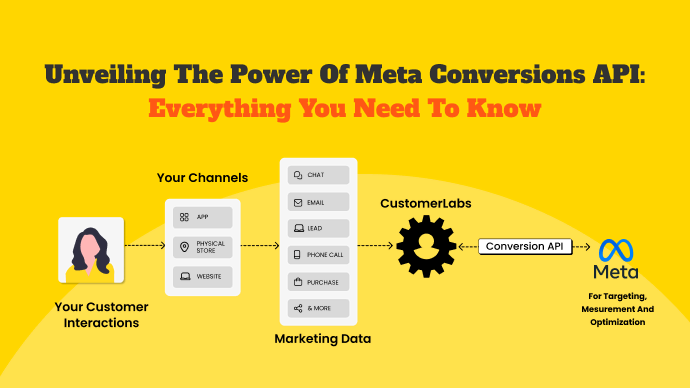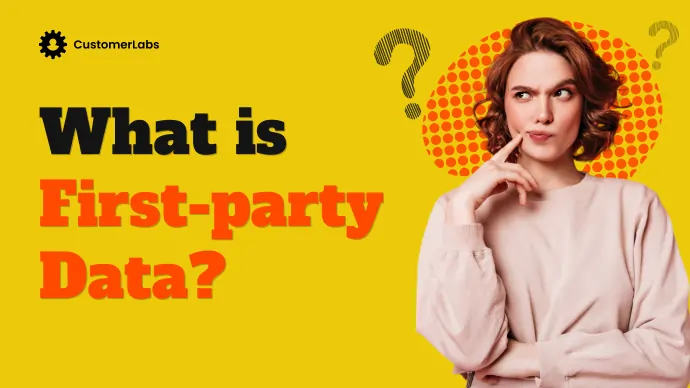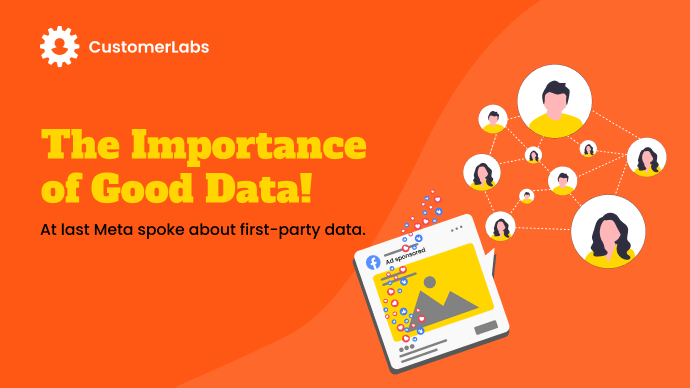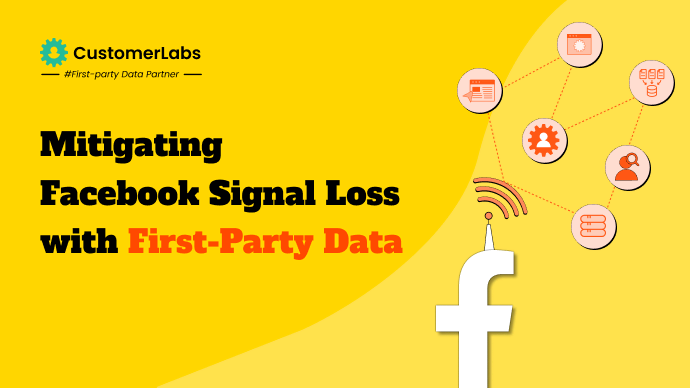
With the increased privacy regulations, the effectiveness of traditional digital advertising methods reliant on third-party cookies and external data for targeting have been declining. Platforms like Google & Meta have lost visibility into users’ identities, interests and behaviors.
This has caused both the tech giants to shift their focus to first-party data advertising because of third-party cookies and privacy changes causing severe audience signal loss on their platforms.
Signal loss occurs when a social media advertising platform is unable to collect data about its users as it used to. Now, it has become essential for marketers to look for means and ways to tackle this issue. In this blog, let us take a look at how Facebook Signal Loss is affecting businesses and how to tackle the same.
The Problem of Facebook Signal Loss
Signal loss is the decrease in users’ data that Facebook can collect about its users due to data privacy regulations, browser changes, and the rise of ad blockers. This loss of data impacts the effectiveness of marketing campaigns.
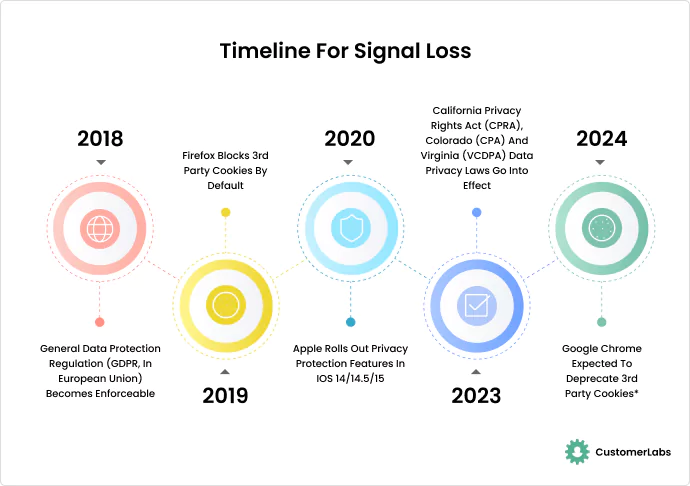
How Facebook Collects Signals?
Basically, a user creates Facebook Signals by taking actions on your website or app and makes some engagements such as liking your products, or adding them to the cart among others.
Traditionally, Facebook collects signals through cookies and other tracking technologies. These technologies allowed Facebook to track users; actions across the website.
However, in recent years, with users being more aware of how their data is being collected and used, many of them are opting out of tracking. This has led to signal loss on Facebook.
How Facebook Signal Loss is Affecting Marketers?
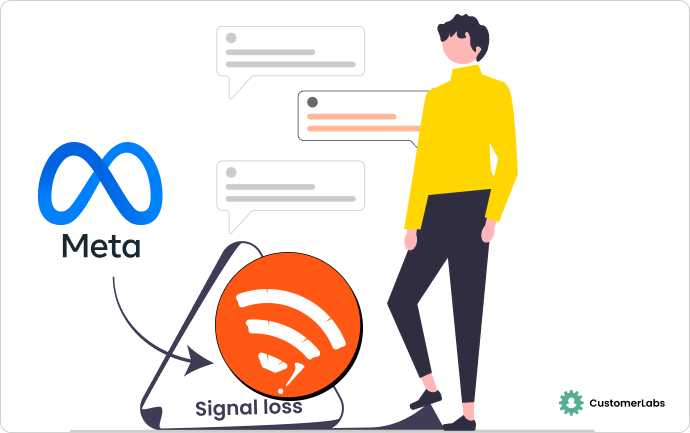
Due to changes in privacy policies and technological changes such as iOS 14 update and Google Android update, marketers are finding it difficult to collect and use user data.
Basically, when a user visits your website and engages with it by wishlisting or adding your product to the cart, the browser contacts the server, which stores a cookie with a unique ID on the user’s computer.
The server identifies the user by sending the data from the stored cookies. The server then returns the browser’s request to target the user with a personalized banner ad. If the user subsequently purchases your products, data signals can be used to attribute the purchase.
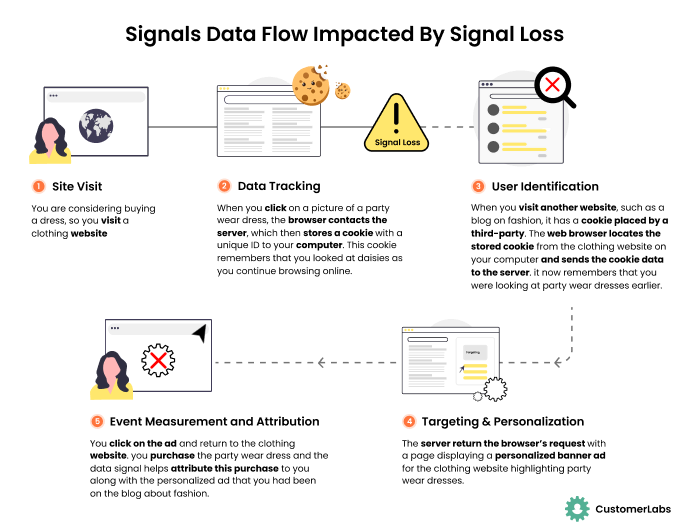
Here, signal loss is the disruption of user identification, targeting/retargeting, personalization, measurement and attribution of conversion events.
This data loss has posed challenges for marketers;
- Reduced targeting accuracy.
- More difficulty in measuring results.
- Impacts the ability to reach, engage, and convert customers.
- Difficulties in identifying prospects.
- Decrease in available conversion data.
Impact of Losing Facebook Signals on Marketing Tactics
When you have a signal loss, you will be facing the following in your marketing tactics;
Cross-site Tracking: Due to signal loss, Facebook will not be able to track users across different websites because of users blocking cookies and tracking technologies.
Targeting & retargeting: Signal loss can disrupt in targeting and retargeting by providing reduced accuracy of user’s data which will lead to increased cost of advertising.
Lookalike Modelling: With less data available due to signal loss, it will be difficult to accurately target lookalike models. Marketers will be having less accurate data, a decrease in personalization, increase in ad spending among others.
Measurement & Attribution: Impacts on measuring and attribution due to signal loss is inevitable. With less data in hand, the process of measuring marketing campaigns and attributing them accordingly will be difficult.
Frequency Control: Here, due to signal loss, you will not be able to control the number of times an ad is shown to a person. This increases ad fatigue, reduces ad effectiveness, and increases ad spend.
Ad Platform Optimization: Without accurate user data, it will be difficult to optimize ad platforms which will lead to waste of ad spend.
With signal loss affecting these many marketing strategies and putting marketers in a difficult position, but the world doesn’t stop here, right? Let’s look at some solutions to mitigate Facebook signal loss.
The Solutions to Mitigate Facebook Signal Loss
Facebook signal loss has been a prolonging issue for businesses around the world which has led to many difficulties such as decrease in ROAS, junk leads, reduced reach and engagement and more.
But, that’s not the end of the world. Even Facebook has said that!
Facebook has recently launched a report on how first-party data along with the use of Conversions API will benefit businesses to tackle signal loss issues. Let’s take a look at the means and ways;
Collect First-Party Data
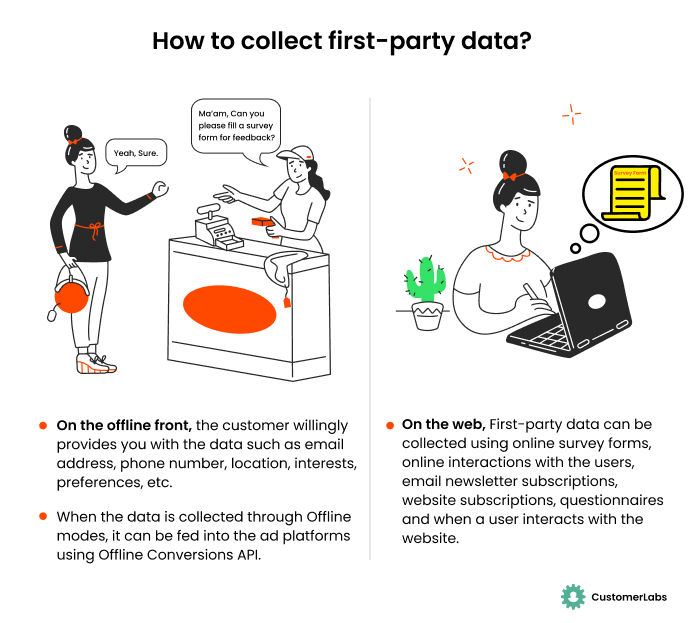
First-party data is directly collected from customers (names, email addresses, purchase history among others), without the reliance of third-party cookies. This data is being collected from the server side and provides deeper insights about customers and helps you with more user data. Here, you won’t lose any data, as it’s been collected from the server side.
By collecting first-party data directly from your own customers, you can reduce signal loss. Utilizing this data, you can accurately target the prospects, measure effectiveness of campaigns, and create personalized customer experience.
Set Up Conversions API (CAPI)
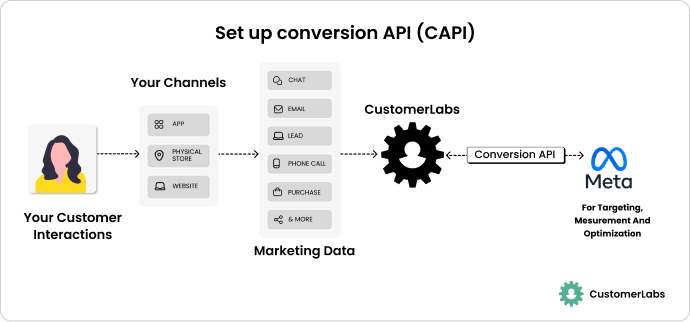
Once after collecting first-party data, the next step is to set up CAPI. With CAPI you will be able to send the user’s data collected from the server side to Facebook and activate the audience, without relying on browser cookies.
Here are few ways to improve the quality of data you send to Facebook;
Event Match Quality (EMQ)
It is the accuracy of the data that you send to Facebook about the users. This EMQ can be improved by ensuring that your events are properly configured and that you are sending the correct data to Facebook.
Redundant Setup
Here, you can make use of both Meta Pixels and Conversions API to collect users data. This will help you to ensure that you won’t lose any data if any tracking method fails.
Deduplication
Deduplication is the process of identifying and removing duplicate data points from a data set. By removing duplicate data, you will be able to improve the accuracy of your users information.
Leverage Offline Data with First-Party Data
Offline Conversions helps to mitigate signal loss by providing rich user data from the actions that are taken outside of Facebook, such as in-store purchases or phone calls. By integrating offline conversions through Conversions API or offline events, Facebook gains user’s information. With this data, you can reach new customers and create accurate ads tailored to specific audience.
We at CustomerLabs 1PD Ops have emerged with a unique method to track all the events off & on your website without the need for any complex coding.

The Benefits
By making use of First-party data and Facebook Conversions API, you will have the following benefits;
- You will be getting customers’ information directly from the server side, so you will comply with data privacy regulations and build users’ trust.
- User’s Data collected directly from users will be more accurate than data collected from browser cookies.
- Having accurate information about users will help you improve your ads targeting and show ads to those people who are likely to take action.
- You will also witness an increase in the performance of campaigns with accurate user’s informations.
- With more information about the user’s, you will be able to target appropriately. This will help you increase in ROAS.
- By making use of first-party data, you will also get the best seed audience and lookalike audience to increase conversions.
- Most importantly you will be able to improve trust between customers by showing you value their privacy by making use of first-party data.
Conclusion
Facebook Signal Loss is a real challenge for marketers, but it’s not insurmountable. By collecting first-party data and utilizing Conversions API, marketers can mitigate signal loss and continue to see results from their Facebook advertising campaigns.
In a world where privacy concerns are becoming increasingly important, marketers should adhere to these concerns and launch effective campaigns. It’s definitely not a cat-on-the-wall situation, but with the use of first-party data, it’s always a win-win.
That too with the third-party cookies being phased out, the digital advertising industry is massively transforming with the reliance on first-party data to get more user’s information to personalize advertising campaigns. This will help businesses to ethically get user’s information and elevate success in their advertising journey.
Happy mitigating!

